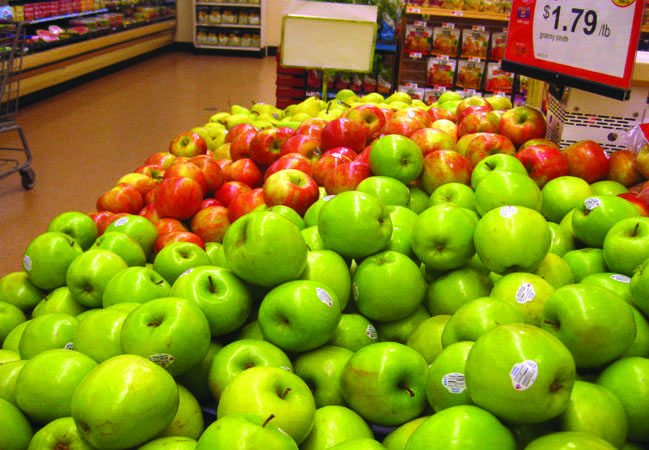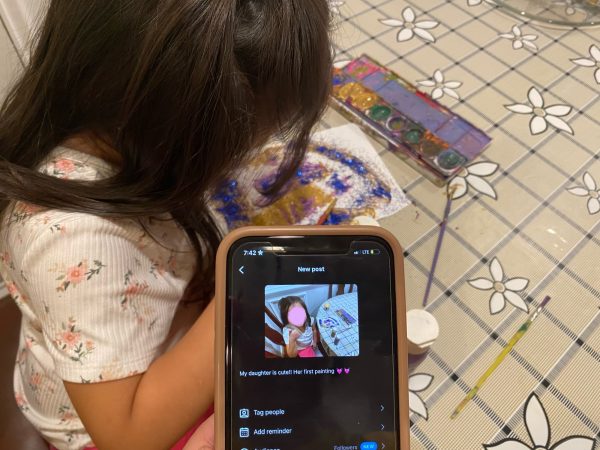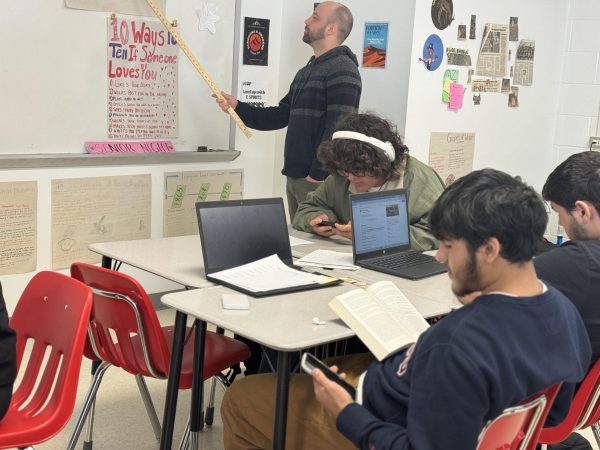GMOs: Agriculture or Poison?
With Genetically Modified Organisms (GMO), DNA from one organism is unnaturally transferred to another. The new organism behaves and grows differently, with traits such as being able to resist cold weather conditions or immunity to pesticides.
Is this good or bad? That depends on who you are. Do you want inexpensive groceries? Do you want healthy food? Do you want your produce to look delicious and last longer?
“One of the pros [of GMOs] is that you get heartier crops. You get crops that are able to have heartier returns. Heartier in terms of more robust, more ripe, they are ripe at the right time,” Biology teacher Rachel Lazar said. “They [the farmers] are able to produce more yield.”
GMOs can increase the amount of food that is harvested by protecting it from bugs and cold, but its downside is unknown.
“The negative side is… It could change the ecosystem in a tiny, slight way… We don’t know what the effects are,” Lazar said. “This is the big thing, we do not know 100% the impact on the health. There could be new allergies that could pop up… that they did not have before.”
Monsanto, a biotech company headquartered in St. Louis, creates, patents, and sells various pesticides and GMO seeds. Monsanto claims, “We are focused on empowering farmers—large and small—to produce more from their land while conserving more of our world’s natural resources such as water and energy… We also produce leading in-the-seed trait technologies for farmers, which are aimed at protecting their yield, supporting their on-farm efficiency and reducing their on-farm costs.”
Monsanto and other similar companies do not allow research on their products. According to Global Research, Center for Research on Globalization, “As a precondition to buy seeds, either to plant for crops or to use in research study, Monsanto and the gene giant companies must first sign an End User Agreement with the company… Most alarming, they are prohibited from examining whether the genetically modified crops lead to unintended side effects either in the environment or in animals or humans.”
Is there something Monsanto and other companies researching in GMOs want to hide?
How many GMO crops do you eat?
Most of your food is probably genetically modified. Do you eat potato chips? Do you drink Coke or Pepsi? Do you eat candy or chocolate? Do you eat food with high fructose corn syrup? All these foods contain genetically modified ingredients.
“On average, Americans consume more than their weight in GMOs each year- 193 pounds of GMOs per person,” according to gmofreeusa.org.
In the U.S. some crops are almost exclusively GMOs. According to the Non-GMO project, in the U.S., 88% of corn is GMO, 90% of cotton, 94% of soy, 90% of canola and 95% of sugar beets, the source of common sugar.
Eggs, meat, milk, and honey can also be contaminated, because of GMOs in animal food, according to the Non-GMO Project.
GMO at AHS
FCPS Food Services maintains a very transparent website, containing the ingredients of all their meals. They display the progress they have made in reducing artificial colors and flavors as well as MSG and High Fructose Corn Syrup.
But what about GMOs? Can FCPS Food Services offer GMO-free lunches?
FCPS Food Services is not opposed to having GMO-free lunches, but they are inhibited by regulations about purchasing and pricing that create obstacles that hinder their flexibility to adapt and make changes. GMOs do not have to be labeled. As a result, FCPS Food Services does not have clear information on GMO content in their food.
However, there is a high probability that the cafeteria food contains GMOs.
“[Because] none of the companies are mandated to label whether or not any of the foods are GMO, it’s impossible for us to tell. And we do not require that because none of the companies actually provide that information,” Ahn Ei Sweeney, Food and Nutrition Services Specialist for FCPS said.
We, as consumers, are in the same situation outside of school as well, since grocery store labeling is also not required.
FCPS Food Services could only guarantee their food to be non-GMO if they buy organic, but organic food is expensive.
“The difference in cost between the regular conventional foods and organic is just way too much,” Sweeney said.
Could FCPS Food Services offer one GMO-free entree per day and price it higher for concerned students?
Currently, USDA and Virginia Department of Education regulations inhibit raising prices on one entree.
“We have certain regulations on how we have to price our meals and we cannot necessarily make one item more expensive,” Sweeney said.
Regulation changes are needed for Organic options to become a possibility

Andrew Peters has been part of the A-Blast since freshman year. This year, as a sophomore, Andrew is the In-Depth Editor. Andrew enjoys reading fiction...







